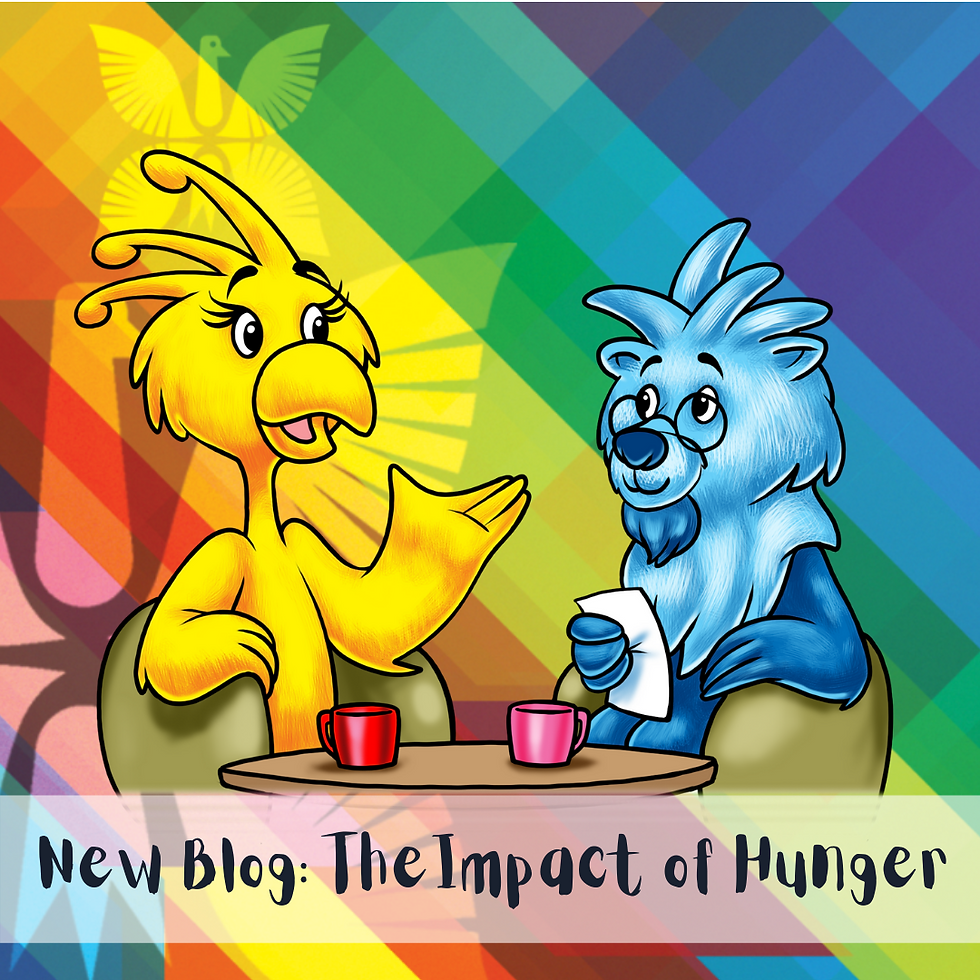The things we didn't say.
- Phoenix Education

- Nov 12, 2020
- 4 min read
Last night, we hosted our regular twitter chat, #KidsCovidMH. As lockdown continues and the pandemic in which we are living with evolves, the topics we have covered during our weekly chats have become increasingly complex and challenging. This week, we explored increased prevalence of domestic abuse and the impact this will be having on children's mental health. We shared our understanding of the severe, long-term effects that are associated with the children that are victims of domestic abuse, violence and conflict. Usually, the nuts and bolts of our conversation plays out on twitter and be understood by following #KidsCovidMH but unlike usual, the impact of this week's conversation certainly happened offline and/or behind the scenes. The conversation has triggered three important topics and perhaps only the first was covered, openly, online.

1. The impact of low level conflict:
There are lots of adults who are in healthy, typical and usually very happy relationships who, with the increased stresses and strains associated with Covid-19 and lockdown find themselves bickering, raising their voices and showing less love more than they did before.
This, as an adult, is understandable. Many of us are able to relate to the notion of someone getting on your nerves when they are under your feet all day and can identify that one final straw that will lead to you losing your cool (and it's probably something you will be laughing about within an hour or so)
But how do these changes in our environment impact our children? Do they think they might be to blame? Do they fear you will separate? Do they suddenly feel uncertain, unsettled and unable to trust the family unit they rely upon for so much of their health and wellbeing.
We agreed that in these circumstances, it is important to help children understand the reason for shifts in mood, changes in emotions and in the environment. Give them the opportunity to safely ask questions, seek reassurance and clarify moods, changes and conflicts if and when they occur.
2. The rise in serious domestic abuse:
With lockdown restricting much of our ability to spend time away with our homes, with friends and family, many abusers now have increased levels of control and influence and, as a result are able to be more controlling, more abusive and more violent.
It is important that we continue to stay in contact with all of our friends and family, listen to their experiences, notice changes in their behaviour and offer support and guidance regardless of how welcomely it is received. Make sure your friends and family know where they can find safety, safe spaces and resources to flee abuse should they need to.
You may wish to signpost some of the organisations shared in the Twitter chat that are also listed below.
3. Abusive children:
Although this isn't we spoke about publicly, behind the scenes we have engaged with numbers of parents living as victims of their children's abuse. To some of us, it may feel like this is only likely to happen in extreme circumstances, but it's a situation that seems increasingly common and, with many separated and blended families, children, the role a child plays in a family is becoming increasingly unclear.
We still aim to protect our children from so many of societies harsh realities but increasingly equip them with information to make informed decisions and choices about their care. They are increasing needs for children and young people to be aware of their rights and informed of their ability to utilise their voice and have it heard as a basic human right. The day-to-day reality of our lives can often seem far more disturbing that programmes that would have once been deemed inappropriate for pre-watershed.
As an abuser often controls their victims with the use of alienation and gas lighting, parents can find themselves afraid to speak out through fear of punishment; afrad that they have failed and that their children's behaviour is in some way a direct representation of their parenting effort or ability.
There is the assumption that children will be nice when presented with kindness, respond to nurturing, caring environments with love and behave well when they are given empathy and flexibility rather then clear rules, boundaries and punishment.
As a parent, it is easier than many of us would like to admit, to find ourselves out of control. To notice that we are the puppets rather than the puppeteers and that we are responding to demands rather than enforcing boundaries.
If you are in this position, firstly, please feel free to reach out to us. Secondly, it is important that you reach out to the services that are designed to support you, without fear and with confidence.
- keep a diary/issue log to share with others and to help you clarify the severity of the situation
- talk to people around you for support; don't be shamed into keeping your situation secret for fear of judgement or punishment.
- protect yourself by putting worst case scenario protocol In place and share with friends or family
- find research, advice and support online.
Regardless of the circumstances you find yourself in, if you are struggling now or in the future please do get in touch by emailing or connecting on social media.




Comments